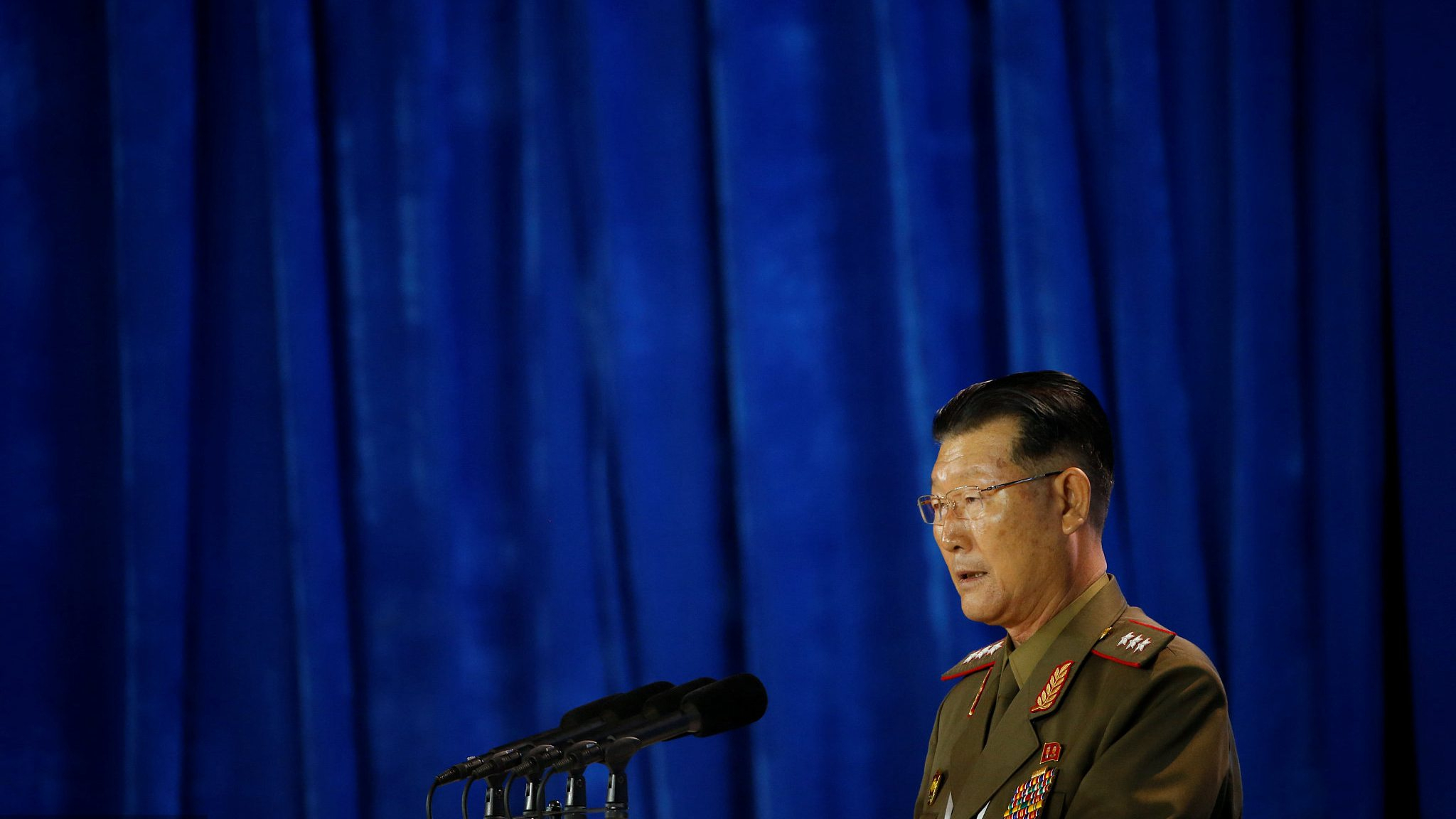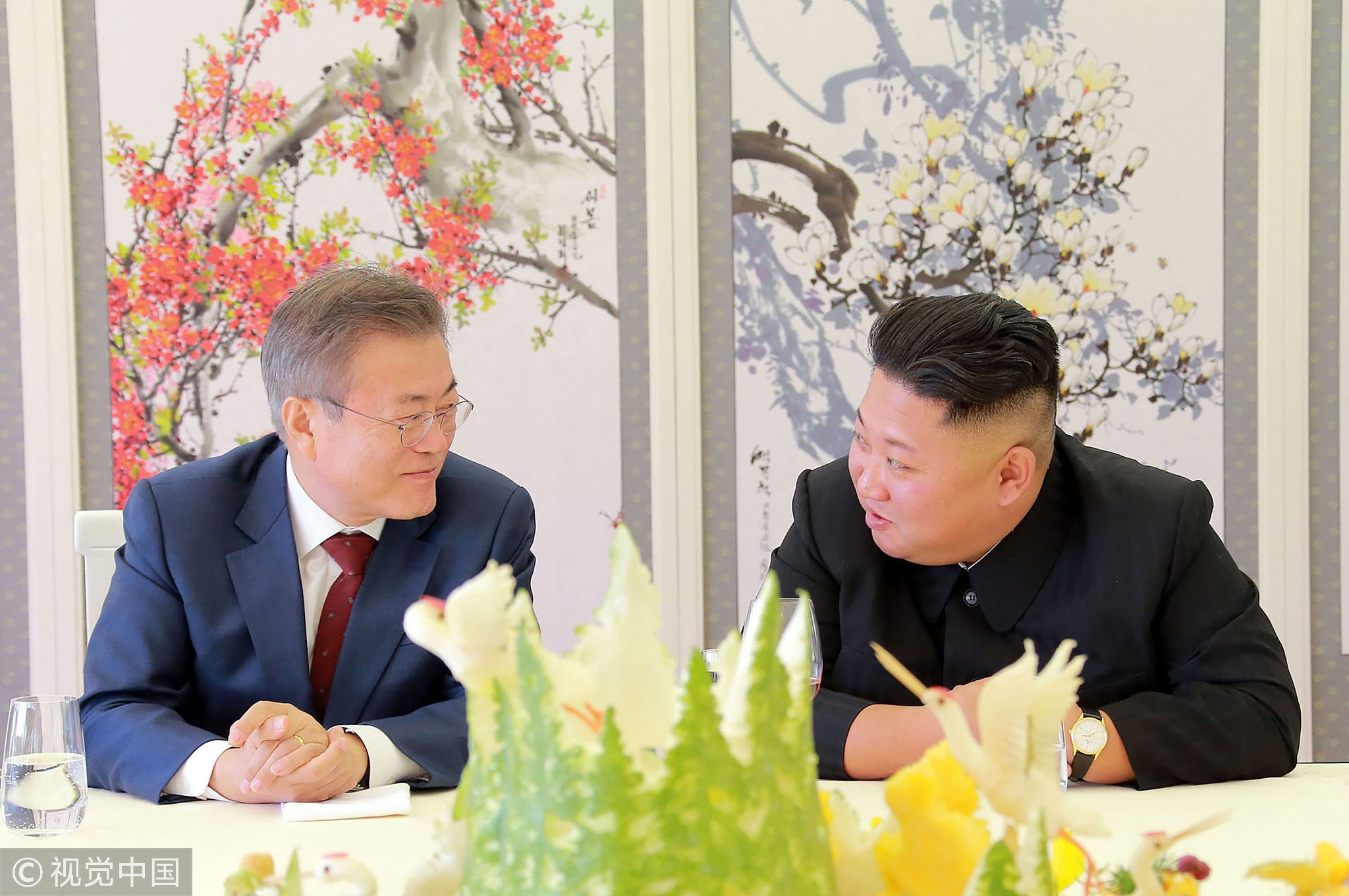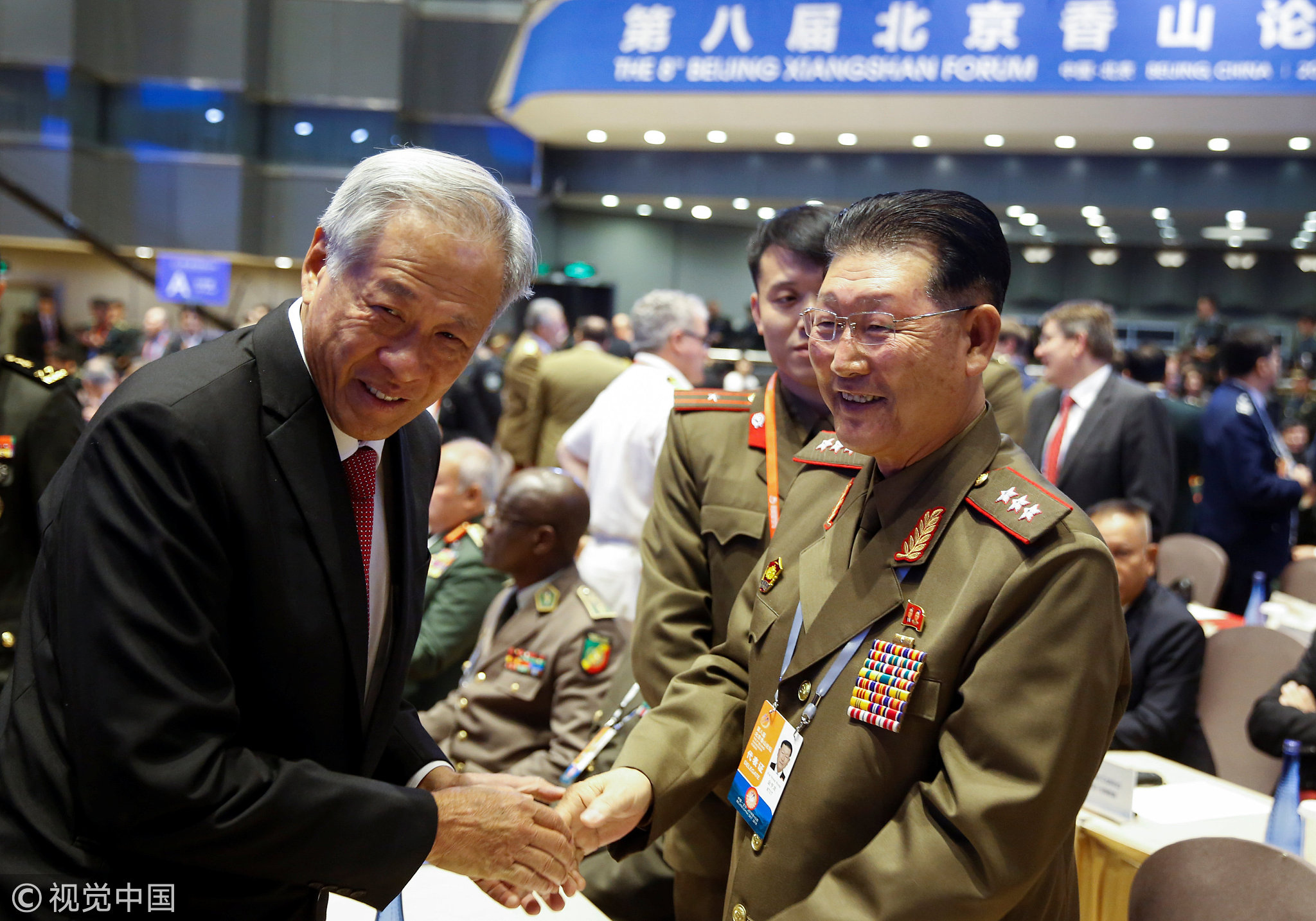
Opinions
10:56, 28-Oct-2018
Opinion: DPRK’s attendance at Xiangshan Forum shows the platform's increasing influence
Updated
10:17, 31-Oct-2018
Zhang Ye

Editor's note: Zhang Ye is a research fellow of the People's Liberation Army's (PLA) Naval Research Academy. The article reflects the author's opinion, and not necessarily the views of CGTN.
The eighth Beijing Xiangshan Forum concluded on October 26, 2018. For the first time, the Democratic People's Republic of Korea (DPRK) sent its delegation to the forum, headed by Kim Hyong Ryong, the vice minister of the People's Armed Forces, who delivered a speech at the first plenary session.
He reviewed the dramatic change in the security situation of the Korean Peninsula, and appreciated the efforts by the international community for peninsular stability, called on further support to push forward the DPRK's economy development, and he reiterated the DPRK's policy to shift its strategic focus toward economy construction, which was declared by DPRK leader Kim Jong Un at the 7th Congress of the DPRK's Workers' Party.
On the same day before delivering his speech, Kim Hyong Ryong met his counterpart of the Republic of Korea (ROK), and they a had friendly and pleasant talk with each other and exchanged ideas about improving the bilateral relationship, implementing the declaration of state leaders, and affirmed “shared position over the rapid implementation of the military agreement,” which was signed by defense chiefs of the two Koreas in September.

DPRK leader Kim Jong Un (R) talks to ROK President Moon Jae-in during a visit to Samjiyon guesthouse near Mount Paektu in Samjiyon, the DPRK, September 20, 2018. /VCG Photo
DPRK leader Kim Jong Un (R) talks to ROK President Moon Jae-in during a visit to Samjiyon guesthouse near Mount Paektu in Samjiyon, the DPRK, September 20, 2018. /VCG Photo
Due to the nuclear weapon and long-range missile programs, the DPRK has been undergoing severe sanctions by the international community and has been isolated from the world. Seldom does the DPRK send its representatives to international multilateral dialogues or forums. However, since the beginning of this year, remarkable changes have happened in the DPRK's national policy: it announced a halt to nuclear tests and the abandonment of test sites, actively improved its relationship with the ROK and United States, and declared opening up and economy construction.
The change is so fast and huge that it is unbelievable to many countries, and they suspect the DPRK's intention and doubt if the change will be sustained in the future, so it is urgent for the DPRK to find appropriate channels and platforms to elaborate the changes of its policy and confirm its intention and position.
The opening of the Xiangshan Forum provides such a platform for the DPRK, as 74 countries and seven international organizations have sent official delegations to attend the forum. Among them, nearly 50 foreign officials are at the vice-ministerial level and above. What is more important is that the forum adheres to the principle of equality, openness, inclusiveness and mutual trust, and the Chinese government consistently takes an impartial and positive stance on the peninsular nuclear issue, and always supports peninsular denuclearization and achieving permanent peace through phased efforts. So it is a wise choice for the DPRK to send its delegates to the Xiangshan Forum to demonstrate its posture and policy to the world.

Singapore's Defense Minister Ng Eng Hen shakes hands with DPRK's Vice Minister of the People's Armed Forces Kim Hyong Ryong at the 8th Beijing Xiangshan Forum in Beijing, China, October 25, 2018. /VCG Photo
Singapore's Defense Minister Ng Eng Hen shakes hands with DPRK's Vice Minister of the People's Armed Forces Kim Hyong Ryong at the 8th Beijing Xiangshan Forum in Beijing, China, October 25, 2018. /VCG Photo
From this perspective, the forum is playing a more influential and pragmatic role in regional security issues. It is not only a platform to exchange security concepts, but also to work out the solution for the most complex international security problems and challenges.
In addition to the traditional topics of security concepts, the eighth Beijing Xiangshan Forum set up more topics on the specific security issues of the Asia-Pacific region and beyond; for example, “solution of security issues in the Middle East, the assessment of Asia-Pacific military security mutual-trust mechanism, artificial intelligence and the evolution of warfare forms.”
The global governance system and international order are changing at a faster pace, and the international community faces increasingly prominent traditional and non-traditional security challenges. More and more countries wish to elaborate policy, coordinate positions, pool wisdom, narrow differences, build consensus and find out the solution to international crises through equal and constructive platforms and mechanisms. This is the reason why the Xiangshan Forum is more widely accepted and appreciated now, and is making more contribution to the peace and stability of the region and world.
(If you want to contribute and have specific expertise, please contact at opinions@cgtn.com)

SITEMAP
Copyright © 2018 CGTN. Beijing ICP prepared NO.16065310-3
Copyright © 2018 CGTN. Beijing ICP prepared NO.16065310-3